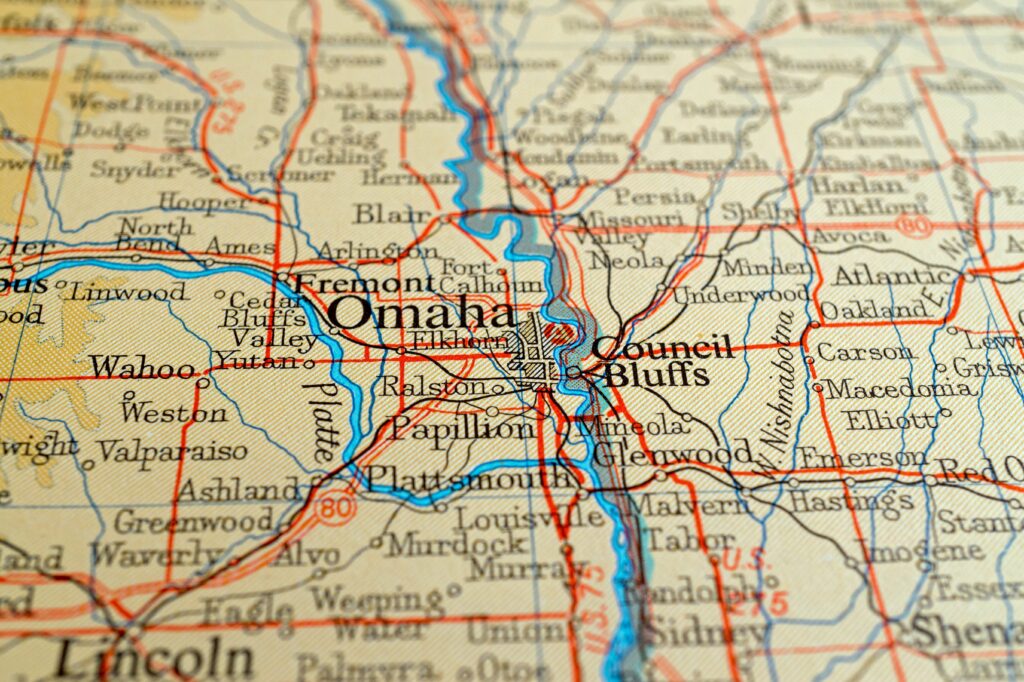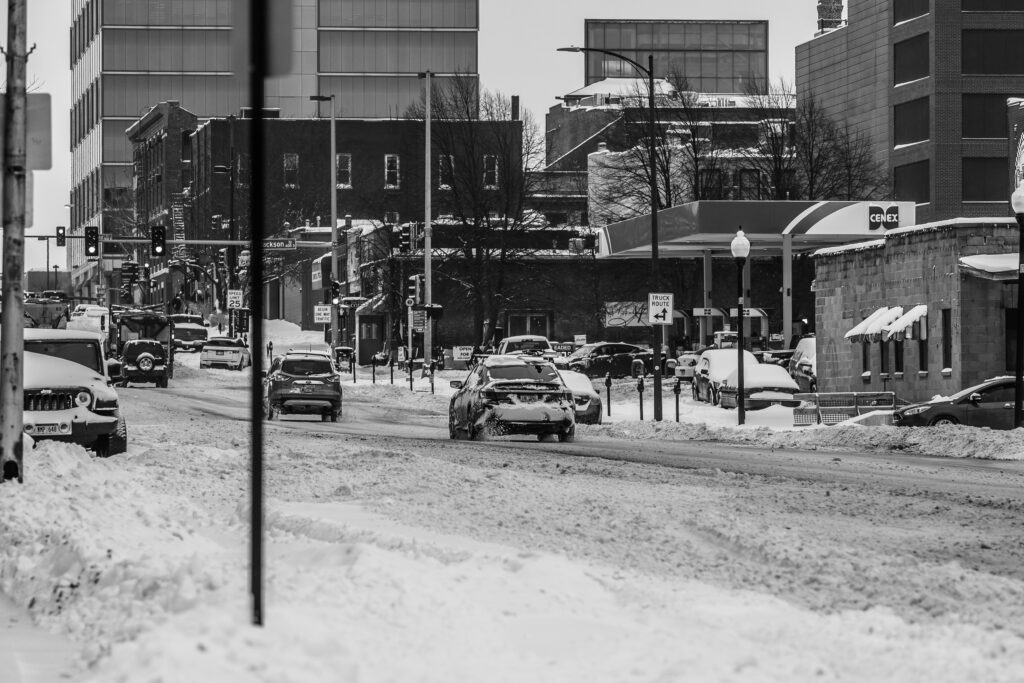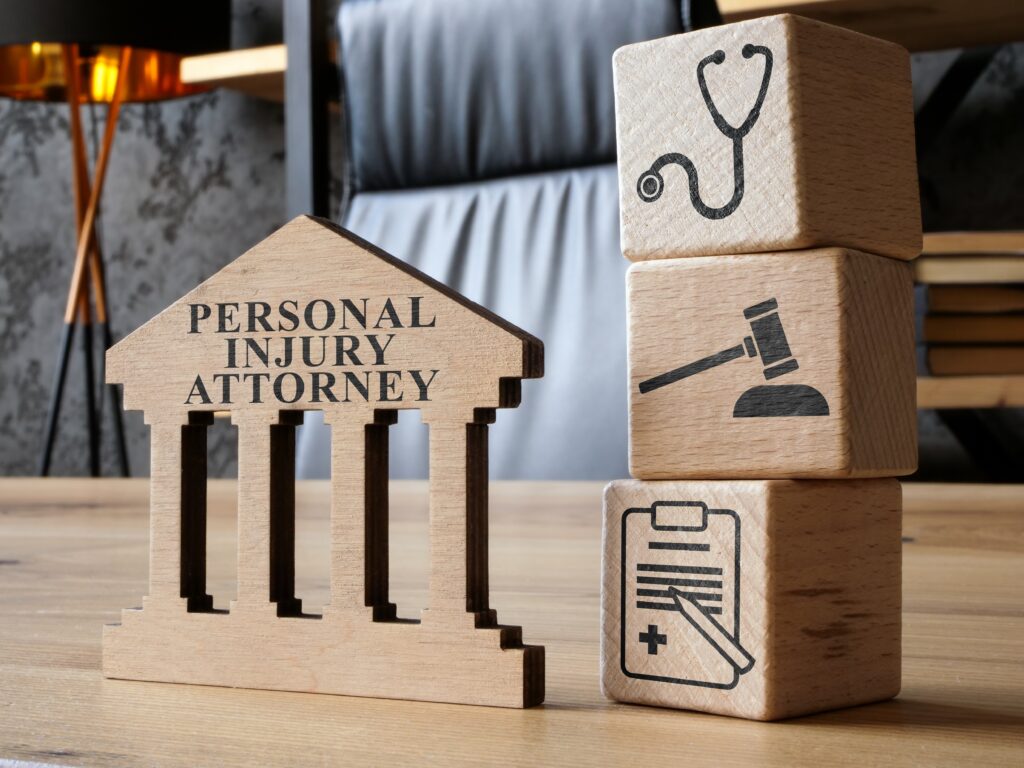Nestled right in the heart of the Midwest, Omaha, Nebraska, is a city that blends its rich history with a lively culture. But some of its roads have a bit of a reputation.
Whether you’re a daily commuter, a weekend road-tripper, or just planning your next visit, you need to know which roads demand your full attention.
Get ready to buckle up and join Omaha personal injury lawyers as we cruise through the streets and neighborhoods of Omaha. We’ll tell you all about the roads you’ll want to approach with caution. After all, safety first.
Risky Roads in Omaha, Nebraska

Pinpointing the most dangerous roads in Omaha presents challenges as they vary based on traffic volume, road conditions, and driver behavior, but these areas have historically seen higher rates of accidents:
- Interstate 80 (I-80): Being a major interstate highway, I-80 can experience heavy traffic and high speeds, increasing the likelihood of accidents, especially during rush hours and adverse weather conditions.
- West Dodge Road (Highway 6): West Dodge Road is a central east-west corridor in Omaha with significant traffic congestion, especially during peak travel times. This congestion and frequent lane changes and exits contribute to accidents.
- Interstate 680 (I-680): Another interstate highway passing through Omaha, I-680 can experience accidents due to its heavy traffic volume, especially where it intersects with other major roads.
- Dodge Street: Dodge Street, particularly in downtown Omaha, can be congested and prone to accidents due to its mix of commercial, residential, and recreational areas.
Dangerous Intersections
- 72nd and Dodge Street: This intersection is a major thoroughfare in Omaha and has historically seen a high traffic volume and, consequently, a higher incidence of accidents.
- 108th and Q Street: Another busy intersection, particularly during rush hours, with multiple lanes and complex turning movements, making it prone to accidents.
- 120th and Center Street: This intersection is in a commercial area with numerous businesses and shopping centers, leading to increased traffic congestion and potential accidents, especially during peak shopping times.
- 72nd and Pacific Street: Similar to 72nd and Dodge, this intersection experiences heavy traffic due to its location and serves as a gateway to various neighborhoods and amenities in Omaha.
- 132nd and Center Street: With nearby residential areas and shopping centers, this intersection can experience congestion and accidents, particularly during peak travel times.
Accident rates vary over time due to infrastructure improvements, changes in traffic patterns, law enforcement efforts, and other factors. Local authorities and legal professionals have more recent data on accident-prone areas that could provide further insights.
What Are the Most Common Causes of Car Accidents in Omaha?

Car accidents can happen for many reasons, but some causes are more common than others.
Here are some of the most prevalent factors contributing to car accidents:
- Distracted Driving: Perhaps the leading cause of accidents in recent years, distracted driving includes activities like texting, talking on the phone, eating, or adjusting the radio while driving. Anything that takes a driver’s attention away from the road significantly increases the risk of an accident.
- Speeding: Driving above the posted speed limit or too fast for road conditions reduces a driver’s ability to react to hazards and increases the severity of accidents.
- Driving Under the Influence (DUI): Operating a vehicle while under the influence of alcohol or drugs impairs judgment, coordination, and reaction time, making it a major contributor to accidents.
- Reckless Driving: Erratic or aggressive driving behaviors such as tailgating, weaving in and out of traffic, and disregarding traffic signals increase the likelihood of accidents.
- Weather: Adverse weather conditions such as rain, snow, ice, fog, or high winds can reduce visibility and traction, leading to accidents if drivers do not adjust their speed and driving behavior accordingly.
- Drowsy Driving: Fatigued or drowsy driving can impair a driver’s ability to stay alert and react quickly to changing road conditions, increasing the risk of accidents.
- Running Red Lights and Stop Signs: Failing to obey traffic signals and stop signs can lead to intersection collisions, which are often severe due to the high speeds involved.
- Unsafe Lane Changes and Merging: Failure to check blind spots, signal properly, or yield when merging or changing lanes can result in accidents, particularly on highways and multilane roads.
- Mechanical Failures: Vehicle malfunctions such as brake failure, tire blowouts, or steering issues can lead to loss of control and accidents if not addressed promptly.
- Inexperienced or Inattentive Drivers: Drivers who lack experience or ignore their surroundings may make errors in judgment or fail to anticipate potential hazards, increasing the risk of accidents.
Awareness of these common causes empowers drivers to make informed decisions behind the wheel, contributing to a collective effort to safeguard our roadways and fostering a culture of responsibility on our journey to safer travels.
What Are the Most Common Injuries from a Car Accident?

Car accidents result in a wide range of injuries depending on factors such as the speed of the vehicles involved, the angle of impact, the use of seat belts and airbags, and the overall health and age of the individuals concerned.
Some common types of injuries include:
- Whiplash: Whiplash is a soft tissue injury to the neck caused by a sudden back-and-forth head movement, commonly occurring in rear-end collisions.
- Cuts and Bruises: Minor cuts, scrapes, and bruises are common in car accidents due to contact with objects inside the vehicle or broken glass.
- Broken Bones: Fractures or broken bones can occur in body parts, such as the arms, legs, ribs, or pelvis, particularly in high-impact collisions.
- Head Injuries: Head injuries can range from mild concussions to traumatic brain injuries (TBIs), which can have long-term consequences depending on their severity.
- Spinal Cord Injuries: Damage to the spinal cord can result in partial or complete paralysis, affecting motor and sensory functions below the injury site.
- Internal Injuries: Internal injuries, such as organ damage or internal bleeding, may not be immediately apparent but can be life-threatening if left untreated.
- Whiplash-Associated Disorders (WAD): In addition to neck pain, whiplash can cause symptoms such as headaches, dizziness, and stiffness in the neck and shoulders.
- Emotional Trauma: Car accidents can also result in psychological injuries, including post-traumatic stress disorder (PTSD), anxiety, and depression, particularly for those involved in severe accidents or who have witnessed traumatic events.
Follow-up care and rehabilitation may be necessary for more severe injuries to ensure proper healing and recovery.
What Damages Can You Claim After an Omaha Car Accident?
In the context of a car accident, damages refers to the losses or harm suffered by people in the accident. These damages can be both economic and non-economic.
Here’s a breakdown of the types of damages victims can claim in an Omaha car accident:
- Economic Damages: These are quantifiable monetary losses resulting from the accident. They may include:\
- Medical Expenses: Victims can claim costs associated with medical treatment, including ambulance fees, hospital bills, surgeries, medication, rehabilitation, and future medical expenses related to the accident.
- Lost Income: Compensation for wages or income lost due to inability to work due to injuries sustained in the accident, including past and future lost earnings.
- Property Damage: Repair or replacement costs for damage to your vehicle or other property due to the accident. This may also include damage to personal belongings inside the vehicle.
- Other Expenses: Additional out-of-pocket expenses incurred directly from the accident, such as transportation costs for medical appointments or household help during recovery.
- Non-Economic Damages: These are subjective losses that are not easily quantifiable in monetary terms. They may include:
- Pain and Suffering: Compensation for physical pain, discomfort, and emotional distress experienced as a result of the accident and injuries sustained.
- Emotional Distress: Victims can claim damages related to psychological or emotional harm suffered, such as anxiety, depression, or PTSD, because of the accident.
- Loss of Enjoyment of Life: Compensation for the loss of ability to participate in activities or hobbies enjoyed before the accident due to injuries sustained.
- Loss of Consortium: Compensation for the injuries’ negative impact on the injured person’s relationship with their spouse or family members.
- Punitive Damages: In cases involving egregious conduct or recklessness, the court might award punitive damages to punish the at-fault party and deter similar conduct. They are relatively rare and typically reserved for extreme cases.
When pursuing a claim for damages in a car accident, it’s essential to document all losses incurred, including medical records, bills, receipts, and records of missed work.
Consulting with a qualified personal injury attorney can help navigate the claims process and ensure you receive fair compensation for your damages.
How Can a Personal Injury Attorney Help You?

A personal injury attorney helps car accident victims by providing legal representation and advocacy throughout the claims process.
They:
- Evaluate the Case: Assess the accident details, including injuries sustained, property damage, and liability, to determine the strength of the case.
- Gather Evidence: Collect evidence such as police reports, witness statements, medical records, and documentation of damages to support the victim’s claim.
- Communicate with Insurance Companies: Engage with insurance companies on behalf of the victim to negotiate fair settlements for medical expenses, lost wages, and other damages.
- Handle Legal Procedures: Navigate complex legal procedures, including filing paperwork, meeting deadlines, and representing the victim in court if necessary.
- Advocate for Fair Compensation: Fight for maximum compensation for the victim’s injuries and losses, including economic and non-economic damages such as pain and suffering.
- Provide Legal Advice: Offer guidance and advice to the victim on legal options, rights, and the potential outcomes of their case.
- Protect the Victim’s Rights: Ensure the victim’s rights are always upheld throughout the claims process and advocate for their best interests.
- Litigate if Necessary: Represent the victim in court proceedings and prosecute the case if you can’t reach a fair settlement through negotiation.
Personal injury attorneys work tirelessly to help car accident victims recover the compensation they deserve and navigate the complexities of the legal system with confidence and support.
How to Find the Right Personal Injury Attorney

Choosing the right personal injury attorney is crucial for ensuring you receive the best possible outcome for your case.
Here are some key factors to consider when selecting an attorney to represent you:
- Experience: Look for an attorney with extensive experience handling personal injury cases, particularly those like yours. An attorney who understands the nuances of personal injury law and has a track record of successful outcomes is invaluable.
- Reputation: Research the attorney’s reputation within the legal community and among past clients. Reading reviews and testimonials and checking with local bar associations can provide insight into the attorney’s professionalism, ethics, and effectiveness.
- Communication: Effective communication is essential throughout the legal process. Choose an attorney who is accessible, responsive, and willing to provide regular updates on your case. Clear and open communication fosters trust and ensures you are informed and involved in decision-making.
- Resources: Assess the attorney’s resources, including access to expert witnesses, investigators, and financial resources to fund your case. A well-equipped law firm can thoroughly investigate your claim, gather evidence, and build a strong case.
- Personalized Approach: Seek an attorney who takes a personalized approach to representation and treats you as an individual rather than just another case number. A compassionate attorney who listens to your concerns, understands your unique circumstances, and tailors their strategy to your needs is essential for a positive client experience.
- Fee Structure: Understand the attorney’s fee structure upfront, including any contingency fees or costs associated with representation. Ensure the fee arrangement is fair and transparent, with no hidden costs or surprises.
Carefully considering these factors and conducting thorough research helps you select a personal injury attorney who is well-equipped to advocate for your rights and help you achieve a favorable outcome in your case.